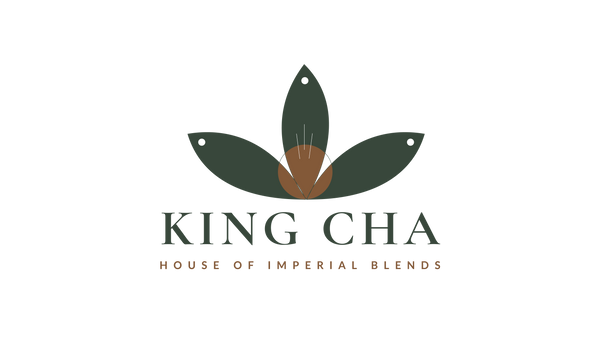History is as fascinating as any myth. While one is established by fact and other imagination, the history of tea carelessly dangles in between both. Being one of the most beloved beverages, tea has undergone a unique roller-coaster ride around the world from its first origin to comfortably resting in the shelves of every household. Nearly 5,000 years ago in ancient China, Emperor Shen Nung was supposedly sitting in the shade of a wild tree and was boiling some drinking water. As he rested with his entourage waiting for the water to boil, a few leaves from the tree wafted into his pot. Mesmerized by the change in colour, he sipped on the concoction and felt a warm sensation spreading across the different parts of his body. Shen Nung named it "ch'a", the Chinese character meaning to check or investigate and thus became the inventor of tea.
This wild brew became a sensation in the country and quickly spread across the regions of East Asia many centuries before it had even been heard of in the West. Containers for tea have been found in tombs dating from the Han dynasty (206 BC - 220 AD) but it was under the Tang dynasty (618-906 AD), that tea became firmly established as the national drink of China. Soon, Japanese Buddhist Monks travelled to China to study and got introduced to tea more as a medicinal beverage which was enjoyed back home among priests and the upper class. However, by 14th century, tea gained popularity among all social classes. It was not long after its popularity that the Zen master Sen no Rikyu (1522 – 1591) who laid greater spiritual emphasis on the history of tea, developed the famous “Tea Ceremony”, a ceremonial and ritualistic way of preparing and drinking tea that promotes wellbeing, mindfulness and harmony.
One might wonder that what took so long for tea to arrive to India? Seen as a luxury item which was only available to the wealthy elites, the mysterious exotic ch’a enraptured the Portuguese and Dutch merchants who quickly began its trade in China. Tea was soon imported into Portugal and gradually made its way through the rest of the nations of Europe. By mid 17th century and 18th century, the history of tea unveiled itself and tea as a unique flavourful drink became a staple of daily life in England. Tea houses sprang up all over the country, providing a social gathering place where people could relish tea and engage in lively discussions. Meanwhile, in the foothills of Assam, local tribes had already experimented with a few wild plants to brew their own version of tea, popular by the name “jia”. So, why is it commonly believed that the British East India Company was responsible for introducing tea to India?
Research shows that tea is indigenous to eastern and northern India and was cultivated and consumed there for thousands of years. Moreover, the practice of Ayurveda has a long standing tradition of herbal teas using the medicinal properties of various plants and spices. However, very little was known about the authentic tea and how it was supposed to be made and consumed. Fortunately, an Assamese nobleman, Maniram Dutta, convinced British surveyors of the existing fields of wild tea plants in the Assamese jungle. Soon, British East India company took over the region and in 1837, the first English tea garden was established at Chabua in Upper Assam. The tea industry rapidly grew procuring large tracts of lands for plantations. By the start of the 20th century, Assam became one of the leading tea-producing regions in the world and thus marking an end to the reliance on Chinese grown tea.
What started out as an agenda by the British to overthrow China’s monopoly over tea became India’s turning point to excel and thrive in the tea industry. Today, tea in India is as common as water found in every kitchen, having as many varieties as the different traditions of the country. From the pristine Darjeeling tea to the popular kadak masala chai, every cuppa bears the distinct mark of the fascinating, age-old history of tea production. When one goes back to the root, the ultimate source, to the tiny seed of germination of a so called myth or legend, one finds a whole trajectory, a path that creates a rich history itself. The history of tea is unparalleled, elusive and steeped in mysticism but the present and future of tea is revitalising. Tea is experiencing an ever-increasing number of varieties and blends as the demand for unique and high-quality teas continue to grow.
At KingCha, we strongly believe in carrying on the ancient tradition of tea cultivation and evolving with the time. We carefully source quality whole tea leaves from the very birthplace of our tea tradition,Siliguri, to deliver a superior tea experience. We creatively experiment to produce diverse refreshing and aromatic blends that can be savoured by all. Let’s bask in the centuries old history of tea together with a cup in our hands!

